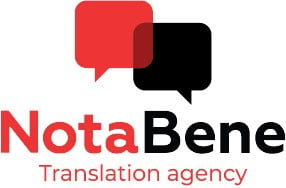What is sworn interpreting?

Not all interpreters have identical competences. Sworn interpreting is a special type of interpreting that can only be performed by people with relevant credentials. Who can deal with this type of interpreting and when is such interpreting mandatory? And finally, how is certified interpreting different from sworn translation?
What is sworn translation?
Translating instruction manuals or marketing content is something every translator can do. Such jobs do not require any special credentials. The situation is completely different when it comes to administrative documents. A government institution needs to be sure that the content of translations corresponds to the original. In fact, it is for this purpose that the profession of the sworn translator was created. A linguist needs to meet several criteria to be entitled to work in this profession.
How can one obtain relevant credentials?
Persons who wish to realize themselves in this profession must comply with the following conditions:
- Citizenship of Poland or one of the EU or EFTA states, or Swiss Confederation,
- certain skills in the field of law,
- no criminal record for intentional, treasury or unintentional crimes compromising security of commercial operations,
- higher education,
- fluency in the Polish language,
- success at the examination for the position of a sworn translator.
What is the difference between the duties of a regular and a sworn translator? It is the scope of responsibility in case of a mistake. Whereas obligations of a regular translator are usually limited by a contract signed with the customer, a sworn translator bears both professional and civil liability, confirmed by a stamp placed on the document.
What is the sworn translator examination look like?
The exam consists of a written and an oral part. It is organized by the State Examination Commission, which operates on behalf of the Ministry of Justice. During the written part, a test taker may use their own dictionary. A test takes four hours and envisages the translation of four texts — two from Polish into a foreign language and two from a foreign language into Polish. At least one of the texts will be either judicial or administrative. After they complete the written part, test takers proceed to the oral part, which consists of consecutive and a vista translation. The former involves interpreting a speaker during pauses, where an interpreter takes notes. A vista translation is oral translation of a written text. Most often such translations are done at front offices and during court proceedings. At least one of the documents is a legal document.
When is sworn translation required?
When is a sworn translator/interpreter necessary and when is it possible to engage someone without such credentials? Sworn translation is always required when it is necessary to certify that the translation is authentic and its content corresponds to the original. Government offices only accept foreign documents in the form of translations that bear a sworn translator’s round seal. In short: sworn translation is required for all legally binding documents. This applies to all civil law documents, school certificates, non-conviction certificates, vehicle certificates and registration cards.
Sworn interpreting — when is it required?
It is necessary, for instance, during the reading of notarial acts, if one of the persons does not speak the language, in which the document was executed. The presence of a sworn interpreter is necessary during court hearings. A sworn interpreter’s role is also important during a wedding when one of the spouses speaks a foreign language.







